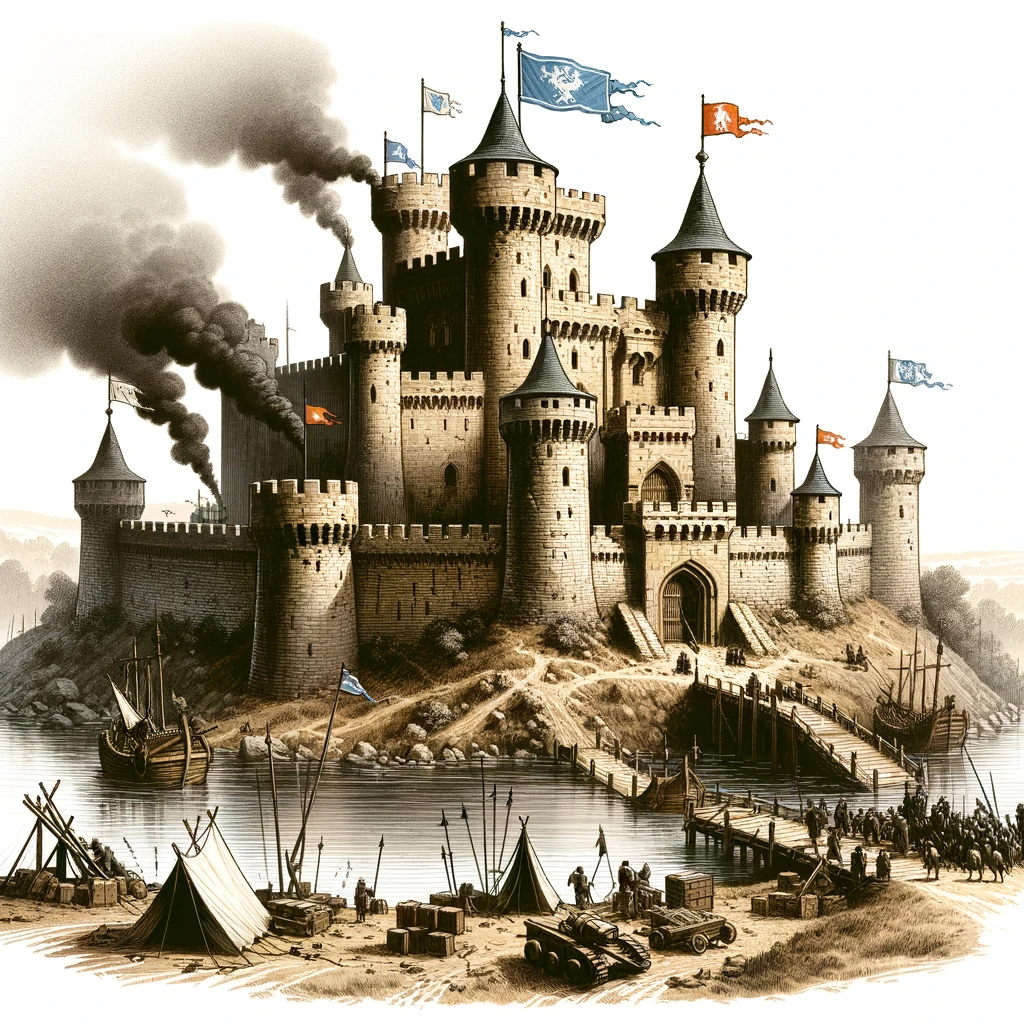Capture
Definition
Capture is used as both a verb and a noun. As a verb, it means to take possession of or seize someone or something, often by force or skill. It can also refer to recording or preserving something, such as an image or memory. As a noun, it refers to the act of capturing or the result of capturing something.
Parts of Speech
- Verb
- Noun
Pronunciation
American English
- IPA Pronunciation: /ˈkæp.tʃər/
- Respelling: KAP-chər
British English
- IPA Pronunciation: /ˈkæp.tʃər/
- Respelling: KAP-chuh
Etymology
The word "capture" originates from the Latin "captura," meaning "a taking," derived from "capere," meaning "to seize or take." The term was adopted into English in the 16th century, carrying the meanings of seizing or securing something.
Derivatives
- Captive (noun/adjective)
- Captivity (noun)
- Captor (noun)
- Recapture (verb/noun)
- Captureable (adjective)
Synonyms
- Seize
- Apprehend
- Record
Antonyms
- Release
- Free
- Liberate
Usage
The term "capture" is commonly used to describe the act of seizing, recording, or preserving something. For example, "The army managed to capture the enemy base," or "She captured the moment on her camera."
Related Terms
- Seizure: The act of taking possession, often by force.
- Recording: The process of capturing data, sounds, or images for preservation.
- Arrest: The act of taking someone into custody.
Detailed Definitions
Verb
- To seize or take control of: Refers to taking someone or something by force or strategy.
- Example: "They managed to capture the fugitive after a long chase."
- To record or preserve: Refers to creating a lasting representation of a moment, scene, or data.
- Example: "The photograph captured the beauty of the sunset."
Noun
- The act of capturing: Refers to the process or result of seizing or securing something.
- Example: "The capture of the town was a significant victory."
- A thing captured or recorded: Used to describe an object or data that has been obtained or documented.
- Example: "The capture showed a rare view of the eclipse."
capture



🇨🇳 Mandarin
- 抓住
- IPA: /ʈʂwa˥˩ ʈʂu˥˩/
- Respelling: zhuāzhù
- 捕捉
- IPA: /pu˥˩ ʈʂwo˥˩/
- Respelling: bǔzhuō
🇮🇳 Hindi
- पकड़ना
- IPA: /pəkɽ.naː/
- Respelling: pakṛnā
- कैद करना
- IPA: /kaɪd kər.naː/
- Respelling: kaid karnā
🇪🇸 Spanish
- Capturar
- IPA: /kap.tuˈɾar/
- Respelling: kap-tu-rar
- Tomar
- IPA: /toˈmar/
- Respelling: to-mar
🇫🇷 French
- Capturer
- IPA: /kap.ty.ʁe/
- Respelling: kap-ty-ré
- Saisir
- IPA: /sɛ.ziʁ/
- Respelling: sè-zir
🇦🇪 Modern Standard Arabic
- أسر
- IPA: /ʔasara/
- Respelling: 'asara
- التقط
- IPA: /ʔal.ta.qaʭˤ/
- Respelling: al-taqaṭ
🇧🇩 Bengali
- ধরা
- IPA: /d̪ʱɔra/
- Respelling: dhora
- গ্রেপ্তার করা
- IPA: /ɡrɛptar kɔra/
- Respelling: greptar kora
🇷🇺 Russian
- Захватить
- IPA: /zəxˈvatʲɪtʲ/
- Respelling: zakhvatit'
- Записать
- IPA: /zəˈpʲi.satʲ/
- Respelling: zapisat'
🇵🇹 Portuguese
- Capturar
- IPA: /kapˈtuɾaɾ/
- Respelling: kap-tur-ar
- Registrar
- IPA: /ʁeʒiˈstɐɾ/
- Respelling: re-zhis-tar
🇮🇩 Indonesian
- Menangkap
- IPA: /məˈnaŋ.kap/
- Respelling: me-nangkap
- Merekam
- IPA: /məˈre.kam/
- Respelling: me-rekam
🇩🇪 German
- Fangen
- IPA: /ˈfaŋ.ən/
- Respelling: fang-en
- Aufnehmen
- IPA: /ˈaʊfˌneː.mən/
- Respelling: auf-nehmen
🇯🇵 Japanese
- 捕まえる
- IPA: /tsukamaeru/
- Respelling: tsukamaeru
- 記録する
- IPA: /kiːɾoku suru/
- Respelling: kiroku suru
🇻🇳 Vietnamese
- Bắt giữ
- IPA: /ɓăt ʒiʷ/
- Respelling: bắt giữ
- Ghi lại
- IPA: /ɣi˧˥ laːj/
- Respelling: ghi lại
🇰🇷 Korean
- 잡다
- IPA: /ʣ̥ap̚.ta/
- Respelling: japda
- 기록하다
- IPA: /ɡiː.ɾʌk̚.ha.da/
- Respelling: girokhada
🇹🇷 Turkish
- Yakalamak
- IPA: /ja.ka.la.mak/
- Respelling: yaka-la-mak
- Kaydetmek
- IPA: /kaj.det.mek/
- Respelling: kay-det-mek
🇵🇰 Urdu
- پکڑنا
- IPA: /pəkɽ.naː/
- Respelling: pakṛnā
- قید کرنا
- IPA: /qaɪd kər.naː/
- Respelling: qaid karnā





